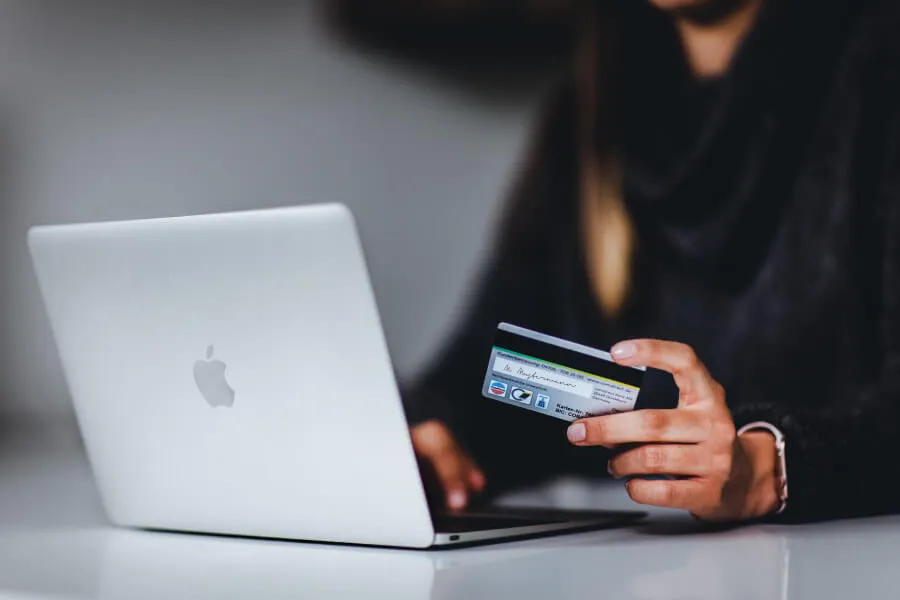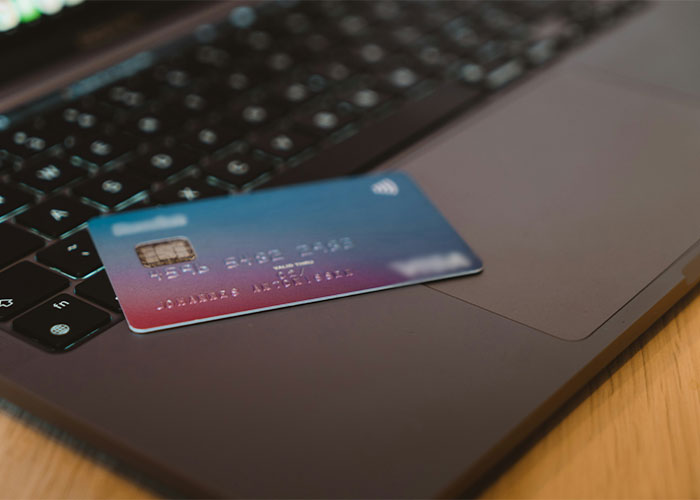To coincide with Computer Safety Day on 30th November, and the shopping frenzy that is Black Friday (taking place on 26th November but in reality becoming a month-long event) we are running through 8 ways you can shop safely online.
8 ways to shop safely online
Look for the lock
Always use secure sites when shopping online and don’t enter details onto a site that doesn’t have an SSL (Secure Sockets Layer). Usually, these sites will begin with HTTPS rather than HTTP. These site URLs will also contain a padlock in the address bar so each time you shop, be sure to look for the lock.
Don’t shop and tell
No one likes an oversharer, except for scammers. So, when you’re shopping online, don’t enter too much information as it could make you vulnerable to scammers.
Most checkouts will merely need your card number, expiry date, name, CCV, your address and contact information. Be wary if sites are asking for more private information.
Deal or no deal?
Ok, so this one isn’t really about keeping your details secure online, but it is about keeping your bank balance in good health.
With Black Friday offers now starting to populate the internet and our inboxes and with Christmas advertising littering the market, the temptation to spend beyond our means is all too tempting. And, with websites saving our payment details, it can be easy to lose track of how much money we are actually spending.
So, before hitting ‘Checkout’, check these few tips to see whether you should purchase:
- Deal or no deal? – is this once in a lifetime, best deal ever really that good? Or can you get it cheaper elsewhere?
- Do you really need it? – Black Friday and the festive season have us adding items to our basket that we don’t really need or in fact want. Wait 30 days before purchasing to see if you really want it.
- Blowing the budget? – will this purchase or present blow your budget? If so, consider whether it’s really worth getting yourself in financial distress for.
Buy now, pay later
Buy now, pay later schemes such as Klarna and ClearPay are available on a multitude of websites these days, encouraging us to spread the cost of our online purchases. While they may be enticing, these schemes are not credit checked and can cause you to spend beyond your means.
Therefore, it is always best to only purchase items online if you have the money available to do so.
Read more on the risks of buy now pay later schemes here.
Check your bank statements regularly
While checking your bank statements may give you the dread, it is a vital way to stay safe online and on top of your finances.
Regular checks of your statements can help you identify if you have been charged too much or the victim of a scam, helping you to get the money back sooner rather than later. Likewise, keeping an eye on your statements can be a great way to stay on top of those online shopping bills – after all, we sometimes only realise how much we are spending when we see it in black and white.
Password protect
Setting up secure passwords is vital when doing anything online. Make sure your password is hard to guess, contains a combination of numbers, letters and symbols and is unique for each site. It is also wise to change your password regularly. This makes it harder for hackers to steal your details.
Use familiar websites
While it’s great to shop around, sticking to familiar, well-known websites is an ideal way to avoid scams and remain safe online by minimising your digital footprint and ensuring the site you are using is trustworthy and secure.
Plus, if you are shopping with the same, well-known retailers you can get clued up on their regular prices, offers and seasonal sales so you know if their discounts are really as good as they say.
Watch for scam texts, calls and emails
Scam texts, calls and emails are often on the rise at this time of year. Including anything from competition wins and delivery arrangements right through to impersonating your bank, scammers will try anything to get your details.
As a general rule of thumb:
- Always check the email address when you receive an email – scam emails can be pretty easy to spot
- Don’t click links or reply to any scam texts or emails
- If you are unsure, contact the company that your message, call or email professes to be from directly. They can easily tell you whether it’s a scam or genuine
- Never give out your details over text, email or phone. Banks or providers will never ask you for such personal information over the phone.
What to do if you think you have been scammed or hacked?
First of all, reset your passwords to secure your accounts. Then report the scam and alert your bank; they can then freeze your account or cards and send you new ones as soon as possible.
Citizens Advice has a handy tool that talks you through step by step what to do if you think you have been scammed or hacked.
Staying safe online and protecting your finances can often feel like a minefield. However, by following these few simple tips, shopping safely online can be as easy as hitting add to basket.
If you are concerned about your outgoings and are experiencing financial distress, use our online debt advice tool to get free online debt advice.


